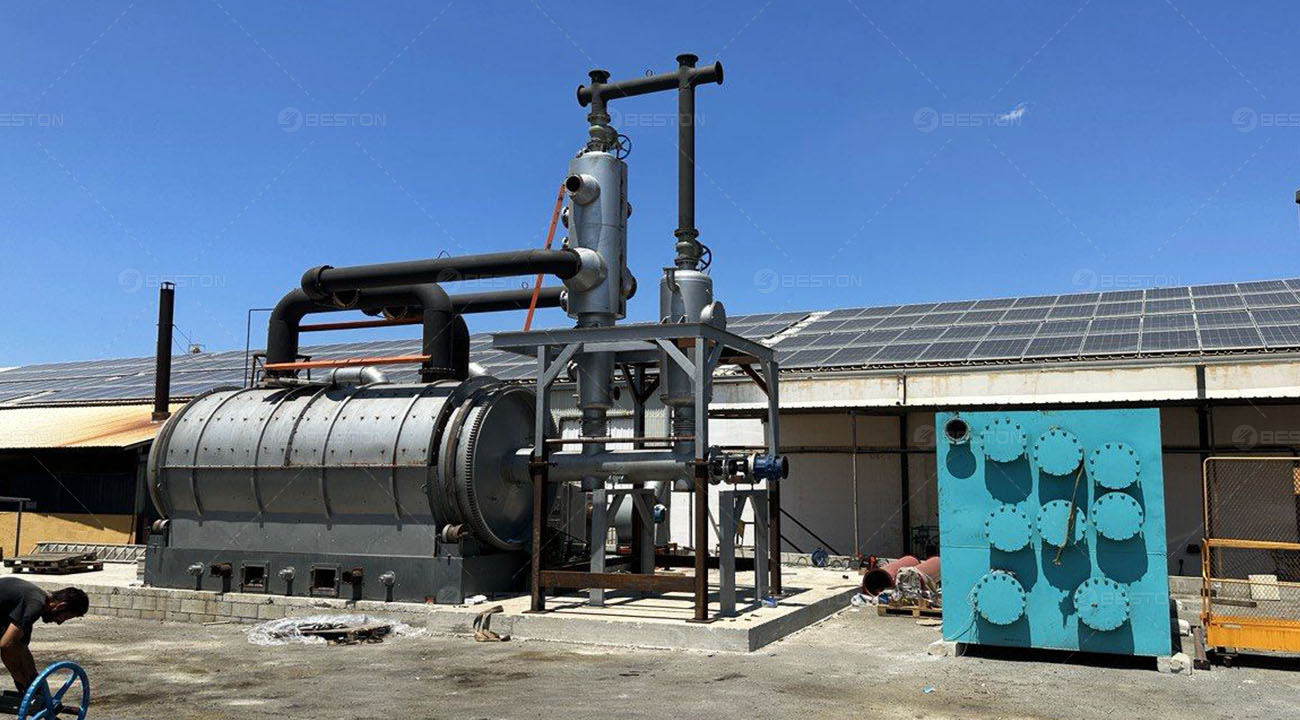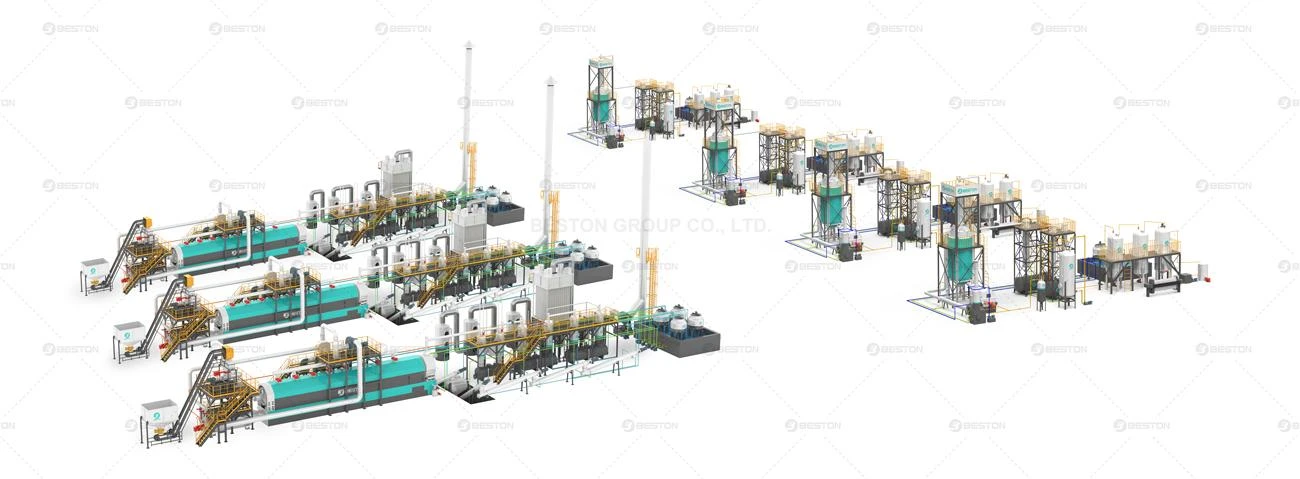Pyrolysis plants are revolutionizing waste management by converting waste materials into valuable resources like oil, syngas, and biochar. This innovative technology not only addresses environmental challenges but also provides profitable investment opportunities. Across Europe, Asia, and Africa, regions with diverse economic and environmental conditions, the demand for pyrolysis technology continues to rise. Let us explore the unique factors driving investor interest in pyrolysis plants in the UK, Malaysia, and Nigeria.
Pyrolysis Plant UK: A Focus on Sustainability
The UK has long been a leader in environmental initiatives, with policies encouraging sustainable waste management and renewable energy adoption. A pyrolysis plant in the UK addresses key challenges such as reducing landfill dependency, managing non-recyclable plastics, and cutting carbon emissions. Additionally, the by-products of pyrolysis, such as syngas, can be integrated into the energy grid, enhancing energy efficiency and sustainability.
Government incentives, including tax breaks and subsidies for green technologies, make the UK an attractive market for investors. Furthermore, the country’s robust infrastructure and established waste management systems provide a stable foundation for pyrolysis plant operations. These factors, combined with the growing demand for eco-friendly solutions, position the UK as a promising location for pyrolysis investments.
Pyrolysis Plant in Malaysia: Tackling Plastic Waste
Malaysia faces a significant challenge in managing its plastic waste, with rising environmental concerns driving demand for innovative solutions. A pyrolysis plant in Malaysia offers an effective way to address this issue by converting end-of-life plastics into valuable resources like pyrolysis oil and carbon black. This technology not only reduces the environmental burden but also creates new revenue streams for businesses.
The Malaysian government’s focus on sustainable development, including its commitment to reducing single-use plastics, supports the growth of pyrolysis technology. With its strategic location and well-developed industrial base, Malaysia provides excellent opportunities for investors to tap into both domestic and export markets. The potential for high returns and long-term environmental benefits makes Malaysia an attractive destination for pyrolysis plant investments.

Pyrolysis Plant in Nigeria: Unlocking Opportunities in Waste Management
Nigeria’s rapid urbanization and population growth have led to increasing waste management challenges. A pyrolysis plant in Nigeria addresses these challenges by converting waste materials, such as used tires and plastics, into valuable resources. This not only reduces the environmental impact but also supports the country’s energy needs through the production of syngas and pyrolysis oil.
Investors are drawn to Nigeria’s abundant supply of raw materials and the government’s initiatives to promote sustainable development. The country’s growing demand for alternative energy sources further enhances the appeal of pyrolysis technology. Moreover, investing in pyrolysis plants in Nigeria contributes to job creation and economic growth, aligning with the country’s development objectives. These factors make Nigeria a promising market for forward-thinking investors.
Regional Comparison: Opportunities Across Europe, Asia, and Africa
While the UK, Malaysia, and Nigeria each present unique opportunities for pyrolysis plant investments, they share common benefits such as environmental sustainability, economic profitability, and resource efficiency. In the UK, the focus is on aligning with stringent environmental regulations and renewable energy goals. Malaysia emphasizes addressing plastic waste and leveraging its industrial base, while Nigeria prioritizes waste management and energy security.
Investors must consider regional differences, such as regulatory environments, availability of raw materials, and market demand, to maximize their returns. However, the universal applicability of pyrolysis technology ensures its relevance across diverse markets, making it a versatile and impactful investment choice.

Conclusion
The rising interest in pyrolysis plants across the UK, Malaysia, and Nigeria underscores the global appeal of this transformative technology. By addressing critical waste management challenges and supporting sustainable development, pyrolysis plants offer unparalleled opportunities for investors. Whether in Europe, Asia, or Africa, this technology paves the way for a greener and more profitable future.
For investors seeking to make a meaningful impact while achieving financial success, the time to invest in pyrolysis technology is now. Explore the possibilities and join the global movement toward sustainability and innovation.